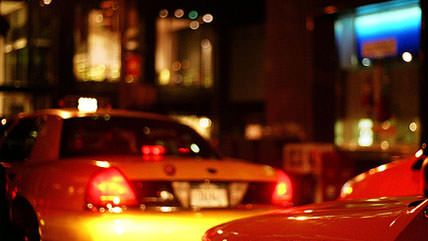Taxi Deregulation Removes Cab Drivers' Economic Shackles
Government doesn't decide the number of gardeners or car-repair shops. Why should it do that for taxis?

SACRAMENTO — After the Civil War, newly freed slaves and poor whites in the Deep South often became "sharecroppers" who farmed land owned by others and paid a share of the crops. Barely able to eke out a living and unable to buy farms, they became indebted to the owners and locked into a life of poverty.
It sounds strange at first, but San Diego's taxicab system — like such systems elsewhere – has parallels to that antiquated economic model. Eighty-nine percent of the city's cab drivers rent cabs. Because of a city-imposed cap on the number of cabs, these drivers cannot go out on their own.
They pay around $1,200 a month to lease their cabs to pay for those high medallion costs. The results are predictable. According to the 2013 "Driven to Despair" survey from San Diego State University and the Center on Policy Initiatives, "San Diego taxi drivers earn a median of less than $5 an hour. … Virtually no drivers have job-related health coverage … ." Drivers are encouraged to "drive when tired or sick."
That all will change. On Monday, the San Diego City Council overwhelmingly approved a proposal from council member Marti Emerald to remove the cap on the number of city-issued permits. The meeting was held at a large auditorium given the high level of interest from drivers and company owners.
The latter have been vocal in their opposition for obvious reasons. As cab owners, they benefit from a cap that eliminates new competition. They often speculate on the value of these city-issued permits, which now are worth up to $140,000. If the system opens up, the value of the permits evaporates, and they no longer have drivers with little choice but to accept their terms and conditions.
"Our drivers want to be owner operators," said Sarah Saez, program director of the United Taxi Workers of San Diego, which represents more than 700 drivers. "They want to be small business owners," she added, noting how excited many of the drivers are to be able to implement new ideas and compete against ride-sharing services. "This is the only way to save the taxi industry."
In September, hundreds of cab owners attended a council meeting to oppose the proposal. Many wore T-shirts saying, "I took out a loan & 401k to acquire my permit." But supporters argue there is no property right in these permits. "They are not stocks or bonds," but are just the right to have a taxi, said City Attorney Jan Goldsmith.
The city can legally change or remove the 993-permit limit, according to its legal opinion from August: "No vested rights are associated with the granting or prohibiting of permits, so no fundamental rights are affected …."
The debate is not simply between the 11 percent who own their cabs and have paid oftentimes exorbitant prices for the permits against the 89 percent who may want to be their own bosses. It's a big matter for consumers and the local economy, too. So it's worth looking at the results in other cities that have taken this approach.
When Minneapolis had a cap, its market was dominated by 10 companies. Now there are 38 companies. The new competitive system created niche players – including a Spanish-language dispatch system and companies that serve neighborhoods that had been under served. Also, those illegal gypsy cabs have disappeared, explained Lee McGrath, an attorney with the Institute for Justice's (IJ) Minnesota branch. The economic-rights group litigated a case that forced Milwaukee to also open up its taxi-permit system.
Under the San Diego proposal, cabbies would still conform to licensing, insurance and safety rules. That's the traditional American approach — let the market set the number of businesses, while using the government to set some ground rules. Government doesn't decide the number of gardeners or car-repair shops. Why should it do that for taxis?
And why should city council members, who have long been concerned about the plight of low-wage workers, tolerate a rule that locks drivers into low pay and 70-hour weeks? Taxi drivers need to be freed from this system of "urban sharecropping," IJ's McGrath added. Yes, it's time to remove their economic shackles.
